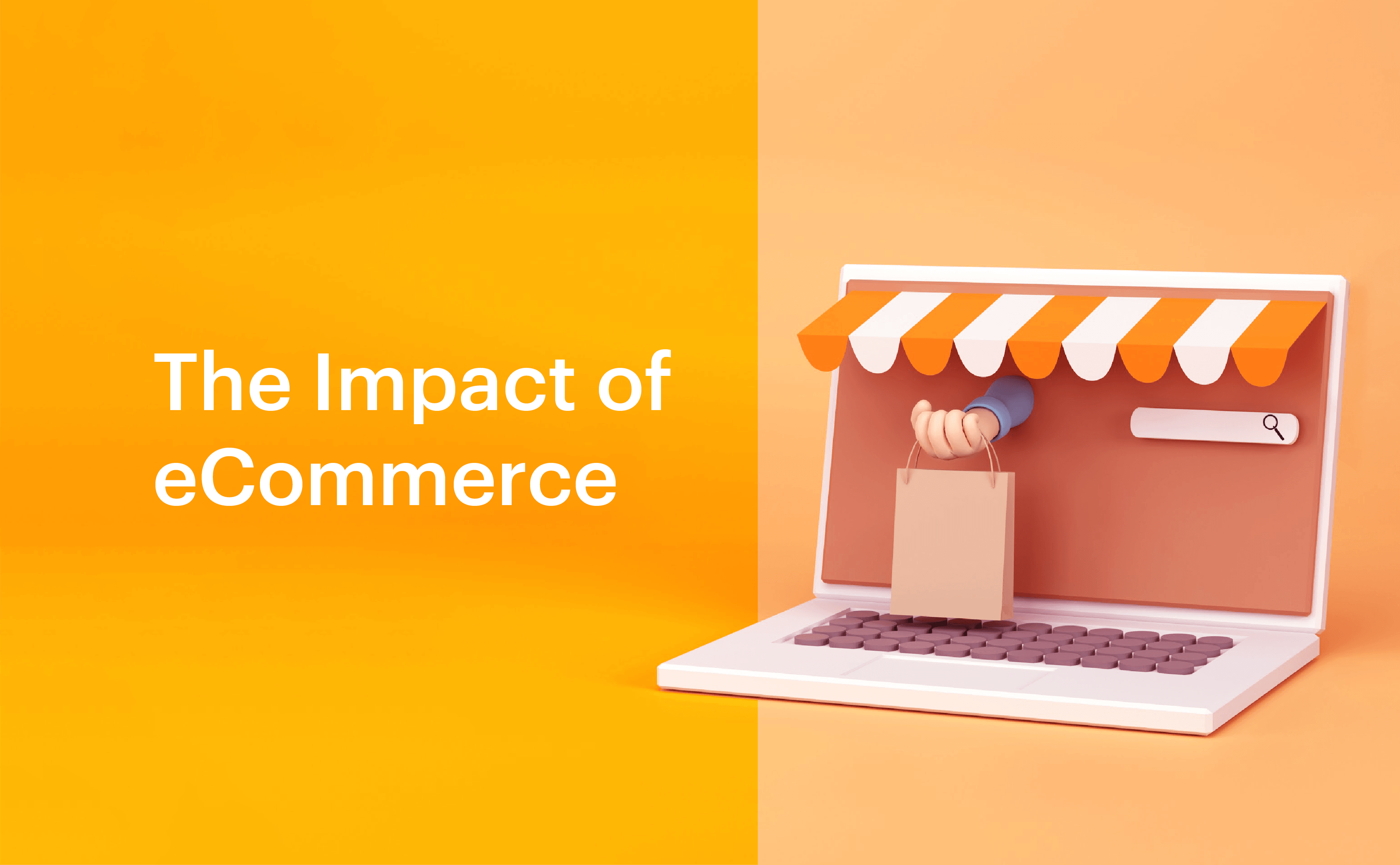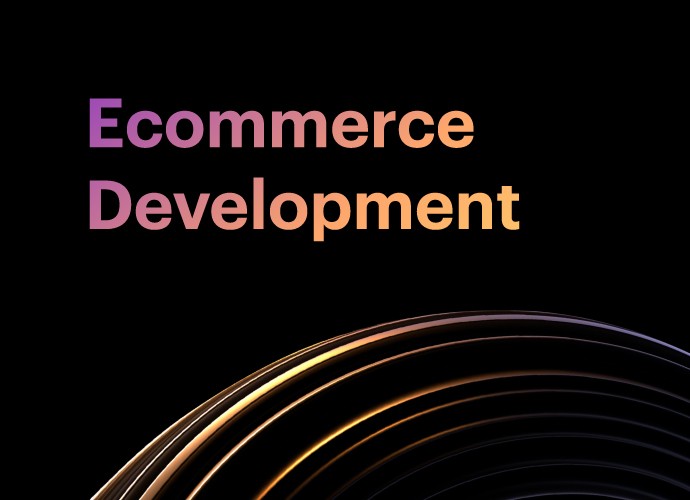The Impact of eCommerce on Society and Business – Advantages and Disadvantages

The most telling impact of eCommerce on business probably has been the ease of business continuity in the face of a global pandemic that has otherwise led to the closure of several businesses, regardless of size or industry.
Thanks to the convenience offered by online shopping and selling, it was business as usual, in spite of nationwide lockdowns almost all over the world.
The scope of eCommerce is certainly huge, and we can understand this from the fact that e-commerce sales crossed $6.5 trillion in 2024 globally.
This means that there is a massive opportunity for entrepreneurs in this sector. It presents a plethora of advantages but is not without its drawbacks either. If you own a conventional brick-and-mortar shop, you need to weigh both advantages and disadvantages of e-commerce before you actually venture into it.
This article will definitely give you a fair idea, but you may also need to do some more research before taking the plunge.
Advantages Of E-Commerce to Business
Doing business online gives numerous advantages to the entrepreneur like speed, flexibility, cost savings, wider reach, and so on. Let’s take a look at them in detail.
1. Less Expensive
When you open a physical store, your capital layout and day-to-day expenses are huge. You need to buy, lease, or rent space, spend money on the décor, furniture, warehousing/storage, light fixtures; then you have electricity and utility bills, salaries and benefits paid to employees, and so on.
However, with an online store, you only need to spend to get your website up and running, and for hosting. Here you have several options – you can start with a simple site and free or shared hosting which will not cost you an arm and a leg.
If you have even just a little technical know-how you can even create the site yourself, as there are many tools available in the market, some for free. You can upgrade as your business grows.
One could hazard, that one of the impacts of E-Commerce is that entrepreneurs have been able to drastically reduce their capital outlays and overheads to start and maintain or continue their business.
2. Greater Reach
With an online storefront, your potential customers can literally be anywhere in the world, provided you are willing to ship. You are not limited by geographical borders.
Your site can be accessed almost anywhere in the world. This is not possible if you only have a conventional store. You can also serve customers at any time of the night or day, on holidays, weekends, and so on. There are no time limits.
3. Speed and Flexibility
Opening a physical store takes a lot of time in addition to money – an e-commerce store on the other hand can be made operational in just a couple of weeks, or even days.
What’s more, you can easily add and remove content on your site like product images, descriptions, change or edit things like the price, color scheme, and so on.
In an actual store, doing all of this will obviously take much longer, and a lot more effort as well. With an online store, you can even work from home; you just need a little storage space for your products.
4. Actionable Data
This is probably the biggest impact of e-commerce; data and analytics. Websites collect all sorts of data; for an entrepreneur, it’s a big boon.
You can get information about your customer like the kind of products they like, how much time they spend on your site, their payment preferences, and so on; you also get information like which products or designs are trending, what kind of advertising or marketing is getting results, and what is not.
This can help you deliver customized shopping experiences to your potential customers, thereby increasing the chances of them buying a product from you.
You can also provide detailed info to customers about every product, including price comparisons with other brands or sites, helping them to make better decisions.
Disadvantages of E-Commerce to Business
Despite its many advantages, E-commerce is not a bed of roses. It has its fair share of drawbacks, so let’s see what they are.
1. Your Website is Your Store
This fact is probably one of the biggest limitations of e-commerce. You need to make sure that your website is efficient and does what it’s supposed to do because you aren’t likely to get a second chance.
In a physical store, the manager may be able to convince a leaving customer to stay on and take another look and so on, but it doesn’t work that way online.
You need to ensure that your website has the following:
- Good navigation – they should be able to easily find what they are seeking, or they will leave, and not return. For this your product categories have to be logically organized, and the layout of your site needs to be intuitive, and not confusing. Don’t litter the site with unnecessary elements and information. So website navigation is important.
- Security – people will not trust a site if they don’t see security certificate, or ironclad privacy policy statements. After all they are going to share their sensitive financial information while making purchases. Data security is very important, and a breach can cause havoc.
- Uptime – make sure that your site is stable and remains up and running most of the time. If your online store is prone to frequent crashes, customers will go elsewhere.
- Credibility – people are always more likely to believe other people rather than a faceless company. Make sure to include customer reviews on your site, as it helps build trust in your brand. For the first few reviews you can even try sample give-aways.
2. Mobile Shopping is Increasing
This is one impact of e-business that tends to get overlooked but should not. With more and more people preferring to shop on the go via their mobile devices, it is imperative that you cater to this segment.
You need to do two things for this:
- You need to ensure that your website is responsive, and that it functions smoothly irrespective of which device, browser, and OS is used to access it.
- You need to build a mobile app, which makes it super easy, smooth, and convenient for mobile shoppers to browse your products and shop anytime they want.
3. Logistics
While your store may be virtual, your products are not – they are very real.
In a physical store, your sale is complete when the customer checks out the product and hands you the money.
In e-commerce, you still have a long way to go. That is because you have to now pack and dispatch the product and follow up with the shipping company to ensure that they deliver the package to the right address.
Your sale cycle becomes complete when the customer actually receives the product from the shipping company; depending on distance, weather, and other factors, this could take from a few days to a couple of weeks. Poor service in delivery can lose you, customers.
4. Returns
Your customer doesn’t know you or where you really are; it helps to have a user-friendly return and exchange policy. Without that, you may find that customers are reluctant to purchase from you.
When you have a clear policy that is displayed prominently, the customers will be more likely to trust you, once they know that they are not just going to lose their money.
Advantages of eCommerce for Buyers
Ecommerce has literally brought the stores into homes. In a nutshell, these are the advantages a customer has with online shopping:
- Anytime, anywhere shopping – shop on the go, or at home, even at night or on holidays
- No more waiting in queues for checking out your purchases
- Avoid traffic and commutes
- Multiple payment options like wallets, credit or debit cards, cash on delivery
Disadvantages of eCommerce for Buyers
While undoubtedly it is a boon for customers, online shopping does pose some drawbacks:
- Inability to see and feel the product physically
- Can lead to unnecessary impulse shopping
- Waiting period to receive the product – delays can happen depending on several factors
Social Impact of eCommerce in India
E-commerce has boomed in India since its introduction as it offers a great deal of convenience to both sellers and shoppers.
In fact, it is believed to have touched the USD 100 billion mark in 2020 itself. Ever since the Covid-19 pandemic hit, it has become even easier for consumers to purchase not just fashion and luxury items, but even essentials, from the comfort of their homes, thanks to the rapid growth of e-commerce in India.
Many owners of conventional stores have also joined the bandwagon, by starting online storefronts in addition, to offer customers more choice. Business owners also have the option of joining eCommerce marketplaces like Flipkart and Amazon, where they can enjoy the benefits of e-commerce without investing anything
One could call this the social impact of the internet in India; the intense proliferation of the internet and mobile devices in the country has certainly contributed immensely to the growth of E-Commerce here.
Impact on Traditional Business and Online Business
There is no doubt that the online shopping boom has negatively affected conventional brick-and-mortar stores, but the new age motto is adapt or sink.
Many traditional businesses also started online storefronts to maintain business continuity and increase their customer base, as well as make it easy for existing customers to continue shopping with them.
It is likely that with time, customers may increasingly prefer online shopping as they can do so conveniently from home, or when they are traveling, waiting in line, and so on.
Conventional businesses that don’t yet have an online presence, need to seriously consider entering this space, to ensure business continuity, and stay relevant.
Final Words
The impact of eCommerce is long-term and here to stay. As technology becomes more integrated into daily life, online shopping will continue to grow. Choosing the right eCommerce website development company is key to building a fast, flexible, and scalable platform. With professional eCommerce development services, your business can thrive and stay ahead as eCommerce expands across industries.

Advanced Ecommerce Development Services
Bridge the gap between your storefront and customer with our strategic eCommerce solutions
- E-Commerce Statistics 2026: Key Trends, Growth Insights & Global Shopping Behavior
- Top Gen Z Shopping Trends Shaping eCommerce in 2026
- Adobe Commerce vs Commercetools: Choosing the Right eCommerce Platform for Scalable Success
- Composable Commerce in 2026: A Mainstream Solution for the Future of Retail
- E-commerce Trends That Are Powering Online Retail Forward In 2026
Discover Digital Transformation
Please feel free to share your thoughts and we can discuss it over a cup of tea.










